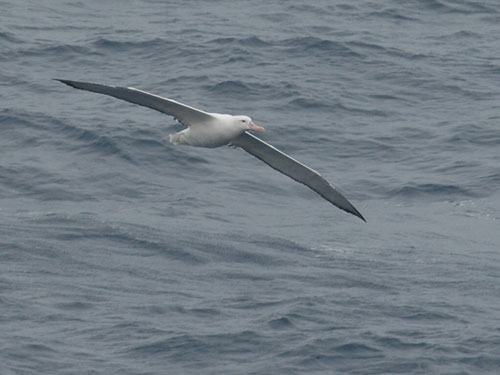Javier Xavier (Department of Life Sciences, Institute of Marine Research, University of Coimbra, Portugal) and colleagues, publishing on-line this month in the ICES Journal of Marine Science, have studied biases that can come about in diet studies of Wandering Albatrosses Diomedea exulans when analysing regurgitated squid beaks.
The paper's abstract follows:
"Cephalopods are components of the diet of many predators worldwide. They are identified mainly using their chitinized upper and lower beaks, but because it has been assumed that the number of upper and lower beaks would be the same in predator diet samples, more effort has been put into creating keys for the lower beaks, which are more easily identifiable from morphology. A test is made of whether the number of upper and lower beaks differs in diet samples collected from a major cephalopod predator, the wandering albatross (Diomedea exulans), potential biases in the estimation of predator diets are assessed, and upper:lower beak ratios in published studies of other seabirds, seals, whales, and fish from different parts of the world reviewed. The ratio of upper to lower beaks in diet samples from wandering albatrosses varied greatly in a single year (from 69.6% more lower beaks to 59% more upper beaks), and between years (from 0.5 to 32.1% more upper beaks), and biases were greater for certain cephalopod species, resulting in underestimation of their relative importance. Future studies need to consider using both upper and lower beaks to improve the assessment of the contribution of different cephalopods to predator diets."
Xavier, J.C., Phillips, R.A. & Cherel, Y. 2011. Cephalopods in marine predator diet assessments: why identifying upper and lower beaks is important. ICES Journal of Marine Science. doi:10.1093/icesjms/fsr103.
John Cooper, ACAP Information Officer, 26 June 2011

 English
English  Français
Français  Español
Español 